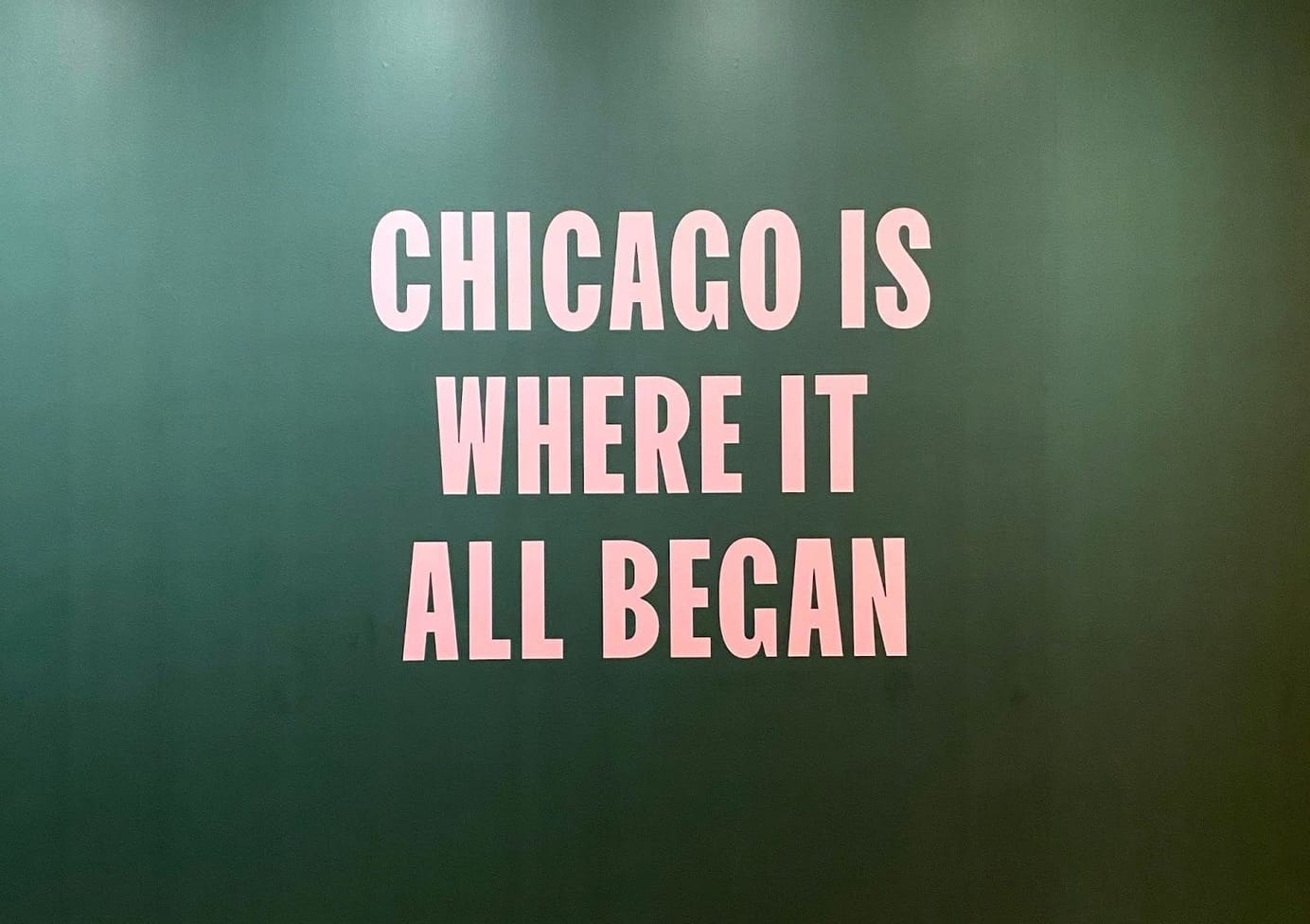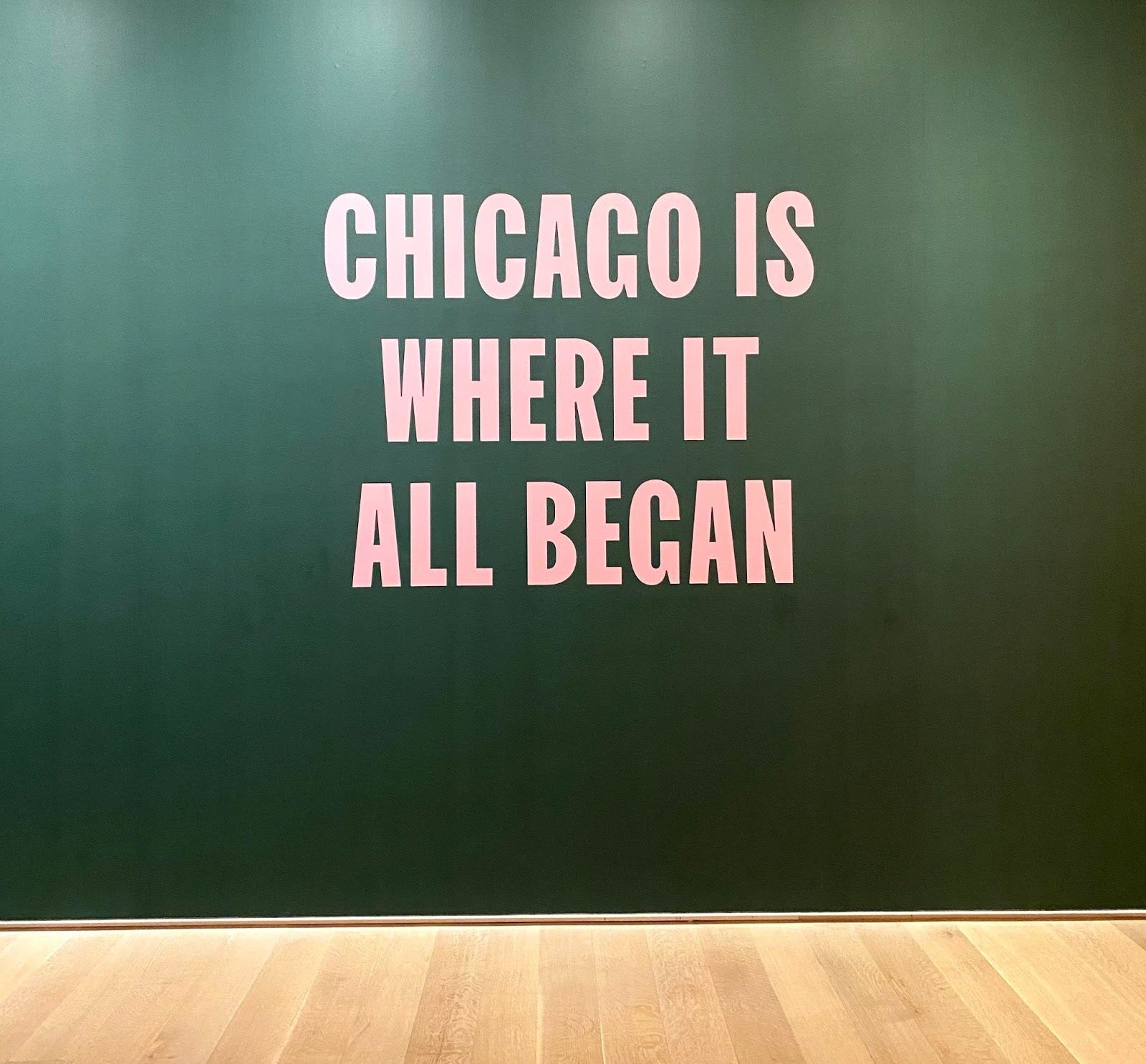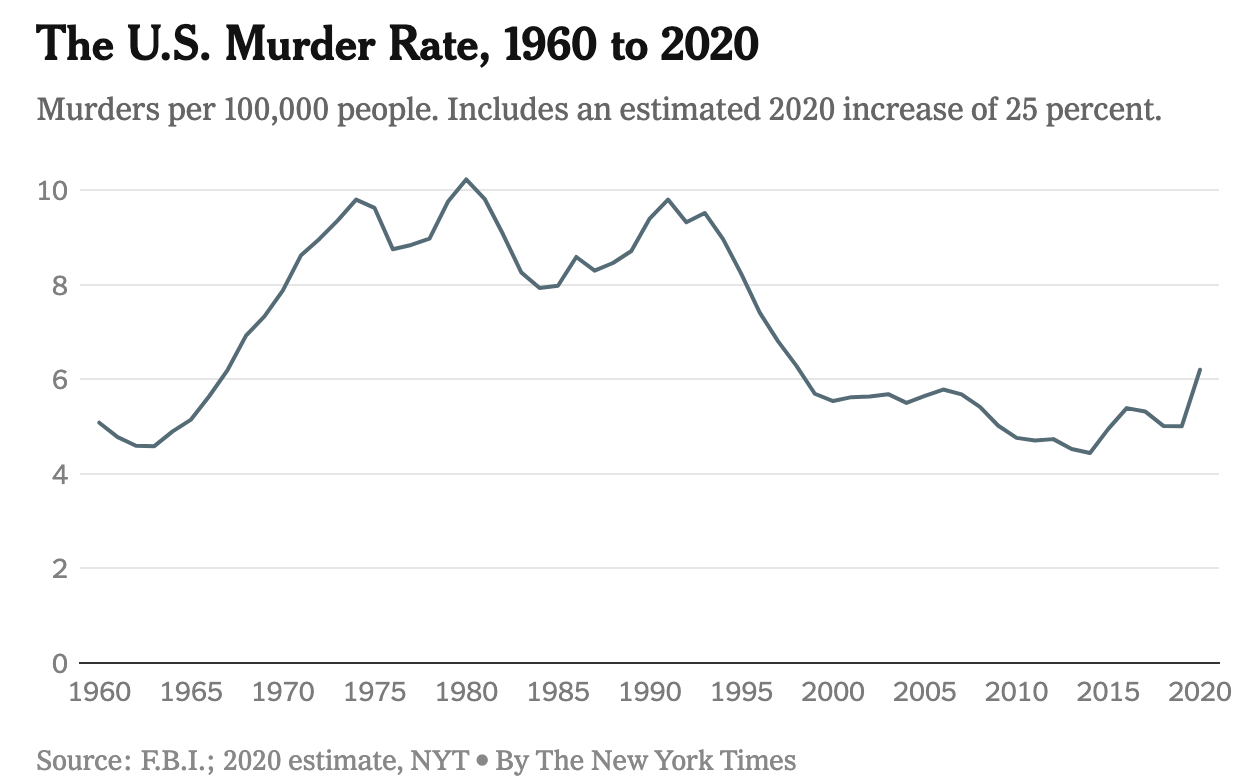
An American Tale: How Systemic is the Rise in Murder Rates?
Chicago & Systemic Racism
This week, I am celebrating America’s birthday in Chicago, IL. Despite the unusual, climate crisis-induced 90 degree heat this weekend, it is a beautiful city. It’s full of kind Midwesterns, outdoor bars & restaurants, and its lakes and rivers are teeming with tourists. Even the Cubs ballpark was packed with happy spectators back for the 2021 baseball season. Historically, it’s a resilient city that used its influence to bring rail to the city, transforming Chicago into the midwestern hub for cattle, wheat, and other goods for northern cities.
But it’s also a perfect encapsulation of the systemic issues that our country faces. If you watch cable news, you would think Chicago is a cesspool of crime, violence, and murder. This notion is perpetuated by right-wing politicians (the former guy called it “worse than Afghanistan”) and propaganda machines like Fox News to paint liberal (and diverse) cities as dangerous and liberal politicians incapable of maintaining safety.

But these stories and attacks lack context, which obscures the truth.
- First, overall crime is down. The crime rate is not skyrocketing in the country. In fact, preliminary data suggests it’s one of the largest declines on record. Property crime was down 7.9% in 2020, which makes up 85% of all major crimes (murder is only 0.2% of major crimes).
- In a historical context, murder rates are still low. The murder rate ticked up 1.2% from 2019 but is still below the crime rate throughout the ’90s.

- This is an American problem. The whole world was rocked by the COVID-19 pandemic, but it was only in the US where 17 million guns were purchased in 2020 alone.
- Current conditions have perpetuated the root cause of murder crimes. Let’s think about this for a second, 2020 was a year where a global pandemic brought countries and economies to a standstill. Millions of people lost their jobs, thousands were forced into poverty, and everyone was forced inside with abusive partners and family members.
Addressing the Root Cause
That last point is what the media often gets wrong when covering the issues in our society. They are presented as fact as if these issues came out of a petri dish in a lab. But no issue is ever created in a vacuum, they’re created in a system.
Similar to immigration issues, the way to combat a rise in murder rates is to address the root cause, not solve it after the fact.
Why does violence occur in a community? It usually is due to inequities and a broken system. High rates of poverty, unaffordable housing due to regulatory hurdles and costs, limited access to clean drinking water, lack of nutritious food due to food deserts, inadequate education, high rates of police harassment for petty crimes, etc.
And it makes sense! Americans are told every day that if you just work hard, you too can become successful and live the “American Dream.” Well, what happens to those kids who live in neighborhoods that have been consistently underfunded? Can you imagine being a kid in the southside of Chicago working 5x harder than kids in Lincoln Park only to be met with hurdle after hurdle just to achieve basic education, an average paying job, and adequate living conditions simply because of the place you were born?
- You’re already behind cognitively due to the dangerous drinking water you’ve been drinking from lead pipes all your life. (Illinois is the worst state for lead pipes. There are 700,000 lead service lines.)
- You wake up in a crowded housing complex because your family can’t afford a home of their own. (Redlining prevented Black Americans from getting housing loans. Today only 35% of Black Chicagoans are homeowners.)
- You have to split your day between school and a minimum wage job so you can help support your family. (67% of Black households are liquid-asset poor)
- If you can go to school and don’t have to pick up an extra job, you don’t get the same level of education. (in 2013, 50 schools were shut down in predominantly Black and Brown neighborhoods)
- You come home to unhealthy foods full of fat and sugar because your family does not have access to an affordable grocery store. (Food deserts, regions with limited access to healthy, affordable food) grew as stores closed down during the pandemic.)
- You have more chances to be caught in the wrong place at the wrong time and arrested by the police for “loitering” or having your pants too low. (despite being only 14% of the population, 56% of incarcerated individuals are black)
Every time you make progress, you are met with another obstacle. When the system fails you, where else do you have to turn? Unfortunately, the answer is usually crime. But we have to stop blaming the individual and start seeing how individuals got to this point within the existing system.
The problem with systemic racism is that it is so stitched into the fabric of our policies and our understanding of society that it becomes invisible to those that aren’t experiencing it. It’s easier for many white or privileged people to blame the victim because they cannot imagine being in that situation. But it’s a lot easier than people think. This imaginary southside kid didn’t choose to grow up in difficult circumstances.
Unless you are Tom Cruise in Minority Report, the police usually cannot prevent murders. Only in America do US cities spend 20-45% of their entire budgets on police (~$100s of millions), but still have the 28th highest rate of gun deaths in the world. Adding to excessive police budgets does not stop murders. The data backs this up too. Cities that increased their police budgets saw that same rise in murder as cities that “defunded the police.”
The only way we solve violent crime is to understand the circumstances that cause people to resort to violent crime. I’m picking on Chicago this week, but this occurs in so many cities and neighborhoods across the country.
the roots of change media Newsletter
Join the newsletter to receive the latest updates in your inbox.



